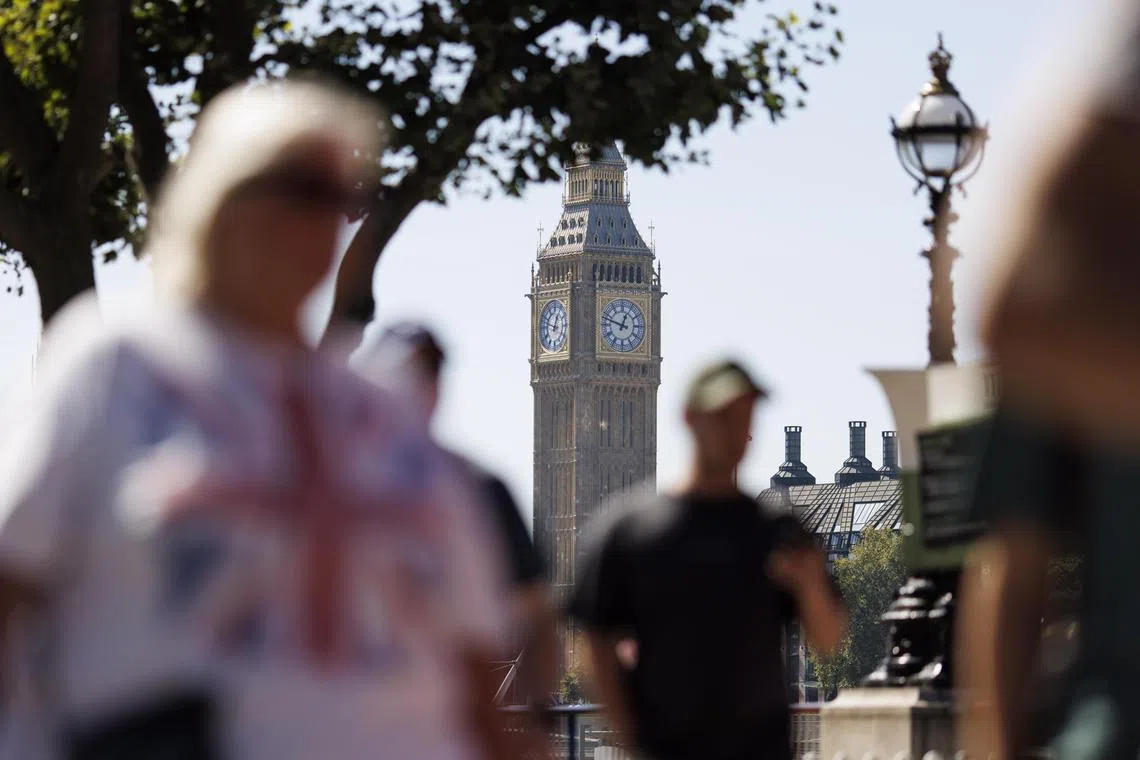British Parliament researcher arrested for spying for China: Report
Sign up now: Get ST's newsletters delivered to your inbox

The Sunday Times said the suspect had contact with MPs from the ruling Conservative Party while working as a parliamentary researcher.
PHOTO: EPA-EFE
LONDON - British police on Saturday said they had arrested a man in his 20s for spying, with the Sunday Times reporting he was a researcher in Britain’s Parliament suspected of working for China.
“Officers from the Metropolitan Police Service arrested two men on 13 March on suspicion of offences under section 1 of the Official Secrets Act, 1911,” said the force.
“A man in his 30s was arrested at an address in Oxfordshire and a man in his 20s was arrested at an address in Edinburgh.”
The Sunday Times said the suspect in his 20s had contact with MPs from the ruling Conservative Party while working as a parliamentary researcher. They included Security Minister Tom Tugendhat and Alicia Kearns, the chairman of the Commons foreign affairs committee.
He is a Briton who has worked on international policy, including relations with Beijing, and previously worked in China, the paper added.
If proven, it would represent one of the most serious breaches of security involving a hostile state within the British Parliament.
Domestic intelligence service MI5 last year warned that a female Chinese government agent called Christine Lee
In July, the Commons intelligence and security committee claimed that China was targeting the UK “prolifically and aggressively” and that the government did not have the “resources, expertise or knowledge” to deal with it.
Mr Tugendhat is reported to have had only limited contact with the suspect, and none while security minister. AFP


